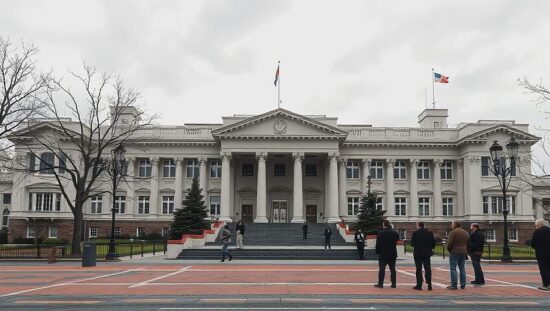A deepening rift is emerging between German state governments and the federal government over a proposed package of tax relief measures, threatening to derail the legislative process and sparking accusations of fiscal irresponsibility. The core of the dispute revolves around the planned reduction of the value-added tax (VAT) for restaurants and an increase in the commuter expense allowance and the federal government’s refusal to adequately compensate the states for the resulting revenue shortfall.
State representatives are vehemently rejecting the notion that they should bear the financial burden of the federal government’s initiatives, echoing a long-standing criticism of Berlin’s tendency to enact sweeping tax changes without considering the consequences for regional budgets. “The era of the federal government dictating billions-worth of tax gifts and expecting states and municipalities to foot the bill is over” declared Kaweh Mansoori, Hesse’s Vice Minister President and Economics Minister. “Who orders, pays.
The proposed changes include a reduction in the restaurant VAT from its current rate back to 7% starting in 2026 and a significant increase in the commuter expense allowance to 38 cents per kilometer from the first kilometer driven, up from the previous threshold of 21 kilometers. Additionally, the allowance for volunteers is slated to rise. While proponents argue these measures offer much-needed relief for citizens and volunteers, the estimated loss of tax revenue for the states and municipalities is substantial, prompting a strong reaction from regional leaders.
Hendrik Wüst, Minister President of North Rhine-Westphalia, via his spokesperson, emphasized the principle of “trigger responsibility” – a commitment that those initiating a measure should be responsible for its financial consequences. While a joint working group has been established to implement this principle, the lack of concrete proposals for compensation has fuelled increasing frustration.
The situation is particularly acute for Bremen, a city-state already grappling with budgetary constraints. According to Bremen’s Finance Senator Björn Fecker, the VAT reduction for the restaurant sector alone would result in an annual revenue loss of €20 million. “Bremen, as a state facing budgetary emergency situations, has no cent to spare” Fecker stated. He sharply criticized the federal government’s decision to subsidize a single industry at the expense of regional finances, demanding that Berlin shoulder the resulting revenue shortfall.
Federal Finance Minister Lars Klingbeil, however, has ruled out direct federal compensation for the states, maintaining that the focus should be on providing relief to citizens. This position has been met with strong condemnation from state representatives, raising serious questions about the long-term stability of federal-state relations and the viability of the proposed tax relief package. The legislation now faces an uncertain path in both the Bundestag and the Bundesrat, with the threat of deadlock looming if a resolution regarding financial compensation cannot be reached.





